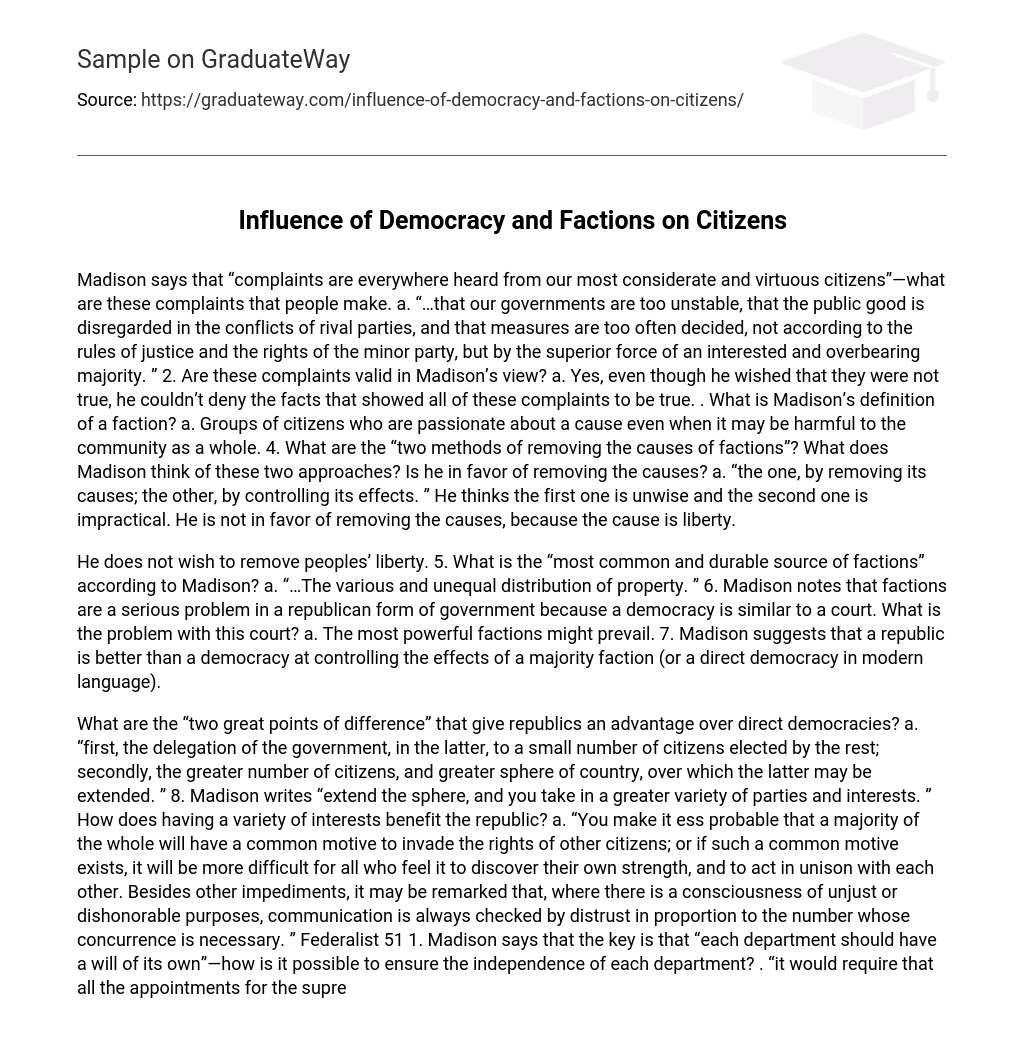Madison acknowledges the widespread complaints from considerate and virtuous citizens, which include governments’ instability, disregard for the public good in political conflicts, and decision-making based on majority force rather than justice. Madison accepts that these valid complaints are supported by evidence, even though he wishes they weren’t true. He defines a faction as a group of citizens who fervently support a cause that may harm the community. Two methods for addressing factions are suggested: removing their causes or controlling their effects. However, Madison considers removing the causes unwise and controlling the effects impractical. He opposes removing the causes because they are rooted in liberty.
He does not wish to remove peoples’ liberty. According to Madison, the “most common and durable source of factions” is the various and unequal distribution of property. Madison acknowledges that factions are a significant issue in a republican form of government because a democracy resembles a court, where the most powerful factions have the potential to prevail. Madison proposes that a republic is more effective than a democracy in managing the consequences of a majority faction (or a direct democracy in contemporary terms).
What are the advantages of republics over direct democracies? The first advantage is the delegation of government to a small number of elected citizens. The second advantage is the ability to extend the government over a greater number of citizens and a larger territory.
How does having a variety of interests benefit the republic? It makes it less probable for a majority to have a common motive to invade the rights of other citizens. If such a motive exists, it becomes more difficult for those who feel it to discover their own strength and act together. Additionally, communication is hindered by distrust when there is a consciousness of unjust or dishonorable purposes.
How is it possible to ensure the independence of each department? According to Madison, all appointments for the supreme executive, legislative, and judiciary magistracies should come from the same source of authority (the people) through separate channels that have no communication with each other.
What does Madison rely on to prevent one branch of government from encroaching on another: virtue or ambition?The founders’ view of human nature implies that ambition is an inherent trait in men, causing them to prioritize their own self-interests over others. This perspective is not perceived as a weakness but rather as a reality that must be embraced due to its unchangeable nature.
Humans need a government because they are not angels. According to Madison, the greatest problem of a government where men rule over other men is the need to enable the government to control the governed and oblige it to control itself. Madison is most afraid that the legislature branch of government will dominate. Additionally, he says that there are two considerations under the federal Constitution that make it less likely for power to become concentrated.
The first consideration is the division of departments to guard against the usurpation of a single branch. The second consideration aims to reduce the problem of abuse of power through two methods. The first method is creating a will in the community independent of the majority, or the society itself. The second method is including in the society multiple separate descriptions of citizens, which will make an unjust combination of a majority very unlikely, if not impossible.





